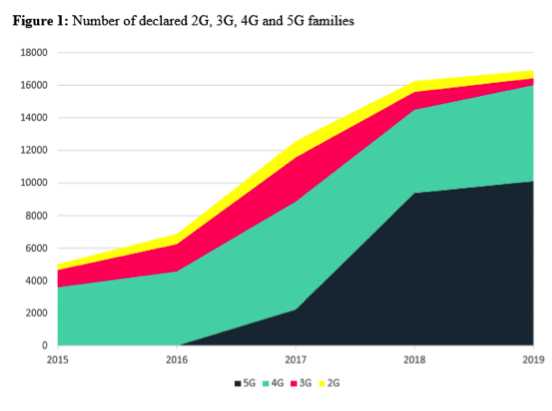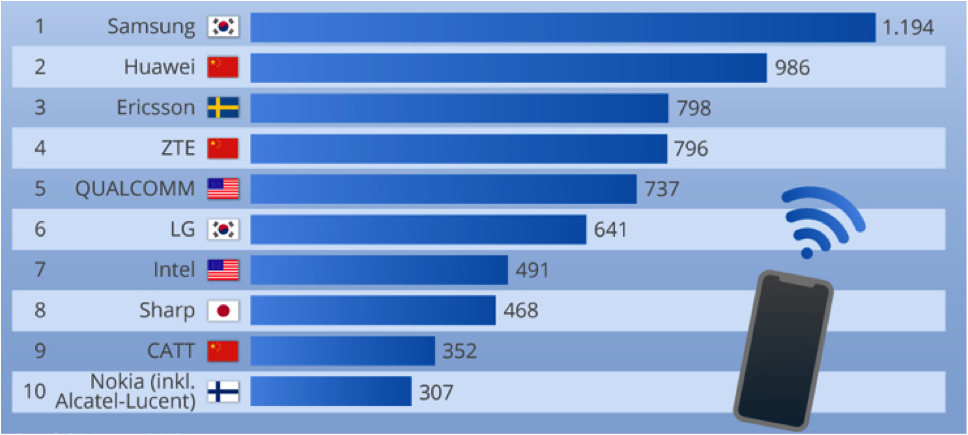5G and the Sputnik crisis: The claims for the communication in the Internet of Things have already been staked
The level of dependency on China and Europe regarding 5G has now really been realized by the top of the American government. It is like the Sputnik crisis in 1957. The Russians, who were considered backward, were the first to launch a satellite into space and America was awakened by the beeping of the “companion” above their heads. Without Huawei, Ericsson and Nokia, basic telecommunications for the Internet of Things will not work. It shows how forward-looking patent work and an understanding of the digital transformation of eco-systems are used to build economic dominance.
The level of excitement surrounding 5G and the distribution of power behind it can also be seen in the discussion in Germany about the integration of Huawei in the network structure. There is no way around Huawei’s technology at 5G. For years, the Chinese company has been sending highly qualified employees to over 2,000 international meetings where the new standards have been discussed and agreed. Prof. Blind from the TU Berlin reported in April 2019 under the title „Wem gehört 5G? Das Wettrennen um Patente“. This was followed by a 5G patent study on behalf of the Federal Ministry for Economic Affairs and Energy (BMWi) with the aim of clarifying the patent situation for the 5G standard, as well as a conference with patent and standardization experts in Berlin on January 10th.
The study with the title „The future of 5G patent licensing“ can be downloaded here.

In the United States, people are almost panicking for a solution. The renowned Bell Labs have long ceased to belong to the empire of the US telecom giant AT&T. First, this think tank for telecommunications was bought by the US network supplier Lucent and then Lucent was taken over by the French competitor Alcatel. They merged then with Nokia and so the think tank, which is named after the American inventor of the modern telephone, Alexander Graham Bell, is now researching 5G and fiber optic data transmission under European leadership. An “America First” way of thinking does not help. Acquisition plans are now being made for Nokia to get out of dependency on China and Europe.
The Federal Government of Germany wants Germany to become the lead market for industrial 5G applications in the superfast Internet of Things. It turns out that this will be expensive, because not a single company is among the top 10 patent applicants as of January 29, 2019.

Top 10 companies ranked by their number of 5G Patent families. Source: Statista „wer hat bei 5G die Nase vorn?“
It shows that it is important to take care of the patent claims for the digital transformation of business eco-systems at an early stage, otherwise you will be left behind economically, politically and strategically.



